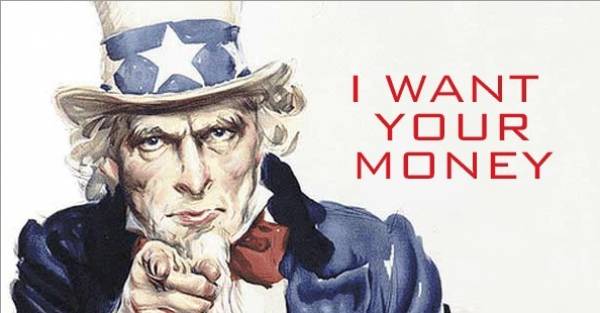Gambling Industry Paid Out $38 Billion for Taxes in 2013

LAS VEGAS (Associated Press) — The gambling industry nationwide paid out a jackpot-worthy $38 billion in federal, state and local taxes in 2013, according to a report from the American Gaming Association.
It's the first time the group has added tribal casinos, casino-game makers and some online gambling into the mix for its annual study of the industry's impact in the U.S. The Associated Press obtained a copy of the report's tax revenue figures before its release Tuesday.
Of the $38 billion in total tax revenue, $10 billion came directly from gambling, the report said. Worker income and Social Security taxes as well as casino property taxes, and more, accounted for the rest.
The numbers could be conservative, according to the firm that conducted the study.
Closely held tribal casinos reveal little about private revenue, so the study considered agreements the tribes have with states governing how much is contributed to local governments and data provided to state gaming boards. It didn't account for personal income taxes that individual gamblers may have paid for any big winnings.
The American Gaming Association commissioned Oxford Economics to study the industry's total economic impact. The numbers arrive as developers and industry officials continue to push for casino properties in cities and states normally unaccustomed to the sounds of ringing slot machines, with government leaders betting on a tax windfall.
"The results prove that that bet is paying off," Geoff Freeman, the association's president, said of the report's numbers.
Freeman is expected to talk about the industry's economic impact at a Tuesday morning press conference as the association's annual G2E conference kicks off at the Sands Expo and Convention Center just off the Las Vegas Strip.
Some parts of the country are not sold on gambling's potential to pay out.
In Massachusetts, for example, voters there are expected to decide if the state's nascent gambling industry should be undone or not.
And bets on the gambling industry have proven shaky in New Jersey, where multiple Atlantic City casinos have closed this year and left thousands out of work. Freeman doesn't expect the troubles there to affect the industry's numbers next time, though. He pointed to the gambling industry's expansion into Maryland, Pennsylvania and elsewhere — the same growth that many say caused Atlantic City's recent failings because it has become less of a unique draw.
"It's not that there's lower demand for casino gaming, it's that there's more competition," said Adam Sacks with Oxford Economics.
The Las Vegas area, though, has seen its slot and table-game gambling revenue rise year-over-year in recent consecutive months. The number of travelers also has picked up despite the growth of tribal hotel-casinos and online gambling.
Hotel-casinos in the Las Vegas area are increasingly relying on dining and drink sales, nightclubs, shopping and attractions to bolster bottom lines. MGM Resorts, for one, is partnering with AEG to construct a sports and performance venue linked to a new pedestrian shopping and entertainment district that the casino giant has dubbed The Park near its New York-New York and Monte Carlo properties.
"If you want gaming to thrive, you need to diversify the economy," Freeman said.














